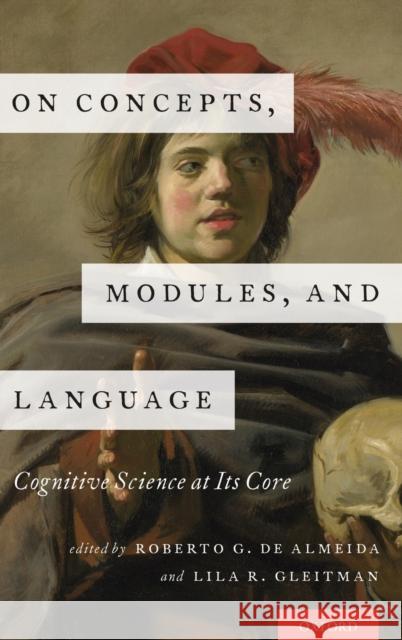On Concepts, Modules, and Language: Cognitive Science at Its Core » książka
On Concepts, Modules, and Language: Cognitive Science at Its Core
ISBN-13: 9780190464783 / Angielski / Twarda / 2017 / 328 str.
What are the landmarks of the cognitive revolution? What are the core topics of modern cognitive science? Where is cognitive science heading? These and other questions are addressed in this volume by leading cognitive scientists as they examine the work of one of cognitive science's most influential and polemical figures: Jerry Fodor. Contributions by Noam Chomsky, Tom Bever, Merrill Garrett, Massimo Piattelli-Palmarini, Zenon Pylyshyn, Janet Fodor, C. Randy Gallistel, Ernie Lepore, Mary C. Potter, Lila R. Gleitman, and others, put in perspective Fodor's contribution to cognitive science by focusing on three main themes: the nature of concepts, the modularity of language and vision, and the language of thought. On Modules, Concepts, and Language: Cognitive Science at Its Core is a one-of-a-kind series of essays on cognitive science and on Fodor.
In this volume, Chomsky contrasts, for the first time, his view of modularity with that of Fodor's; Bever--one of the pioneers of modern psycholinguistics--discusses the nature of consciousness in particular with respect to language perception; Garrett--another of the pioneers of psycholinguistics--reassesses his view of modularity in language production; Pylyshyn--one of the leading figures of the modern symbolic, computational view of the mind--presents his view of the connection between visual perception and conceptual attainment; Gallistel--one of the most prominent cognitive neuroscientists--presents a proposal on what the biological bases of the computational theory of mind might be. Massimo Piattelli-Palmarini discusses Fodor's views on conceptual nativism, stemming from the epic debate between Chomsky and Piaget, which Piattelli-Palmarini organized. These and many other key figures of cognitive science are brought together, for the first time, constituting the most up-to-date critical view of some of cognitive science's most polemical topics and its prospects as the science of the mind. This volume is aimed at students and advanced researchers in core areas of cognitive science and is bound to become one of the classics in the field.










